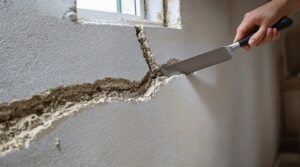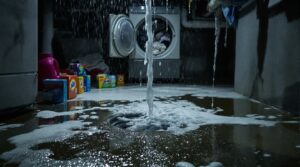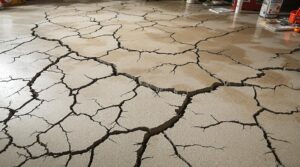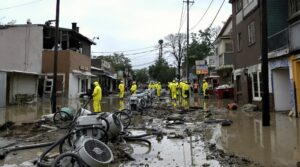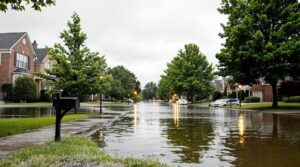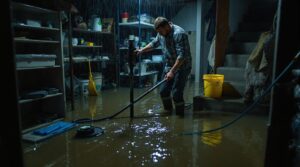Flood insurance typically covers damage caused by the overflow of stormwater systems, nearby water bodies, or heavy rainfall that results in floodwaters. However, it generally excludes damage from rainwater that enters a building through roofs or walls. To navigate the complexities of flood insurance and understand the distinctions between rain damage and flood damage, it is crucial to examine the specific terms and exclusions of a policy, which can provide further insight into what is covered.
Key Takeaways
- Flood insurance typically covers damage from floodwaters, including overflow from bodies of water, storm surges, and heavy rainfall.
- Rain damage from water infiltration through roofs or walls is generally not covered by flood insurance.
- Flood insurance covers rain-related damage caused by accumulation due to stormwater management issues or nearby water body overflows.
- Damage from sewer backups or sump pump failures may be excluded from flood insurance coverage without specific endorsements.
- Reviewing policy exclusions and geographic flood risk is crucial to understanding the extent of flood insurance coverage for rain damage.
What Is Flood Insurance and What Does It Cover?
Flood insurance is a specialized type of insurance coverage designed to protect property owners from financial losses resulting from flood-related events. As a fundamental aspect of flood insurance basics, it is essential to understand what this type of policy covers. A standard flood insurance policy typically covers damage to the building and its contents resulting from floodwaters, including overflow from nearby bodies of water, storm surges, and heavy rainfall that causes flooding. Coverage limits are available up to a certain amount, which can vary depending on the location and type of property. Typically, a flood insurance policy covers structural elements, such as walls, floors, and roofs, and personal property, such as appliances, furniture, and clothing, up to the specified coverage limits.
Rain Damage vs. Flood Damage: Understanding the Difference
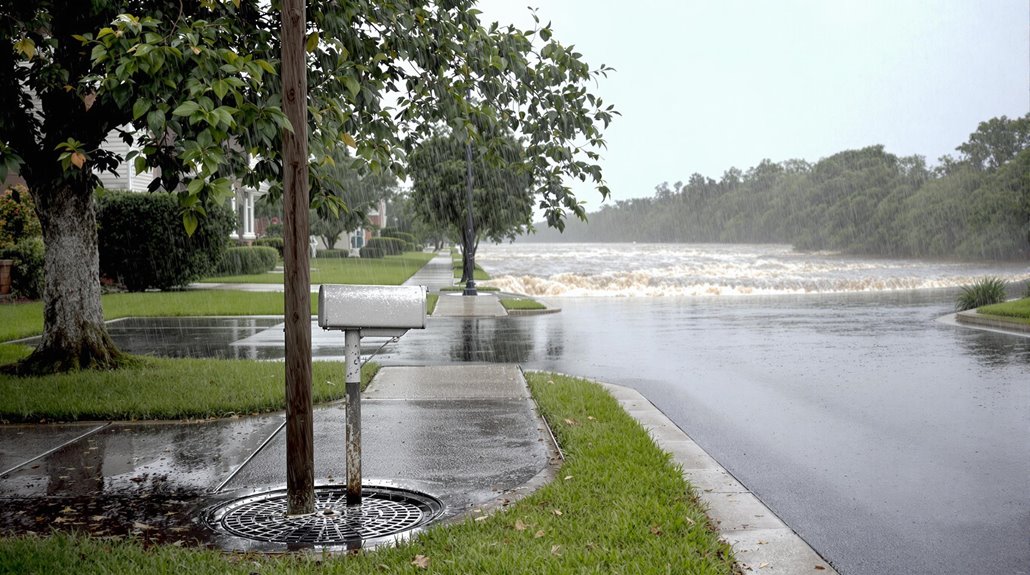
How does one distinguish between damage caused by heavy rainfall versus damage resulting from a flood event? The key lies in understanding the nuances of rainwater management and stormwater systems. Rain damage typically occurs when rainwater infiltrates a building through the roof, walls, or windows, often due to inadequate maintenance or faulty construction. In contrast, flood damage results from the overflow of stormwater systems, such as rivers, lakes, or coastal areas, which can cause widespread inundation of surrounding areas. The distinction between the two is essential, as it affects the applicability of flood insurance coverage. By recognizing the differences between rain damage and flood damage, individuals can better navigate the complexities of flood insurance and make informed decisions about their coverage needs. Research shows that only 27 percent of homeowners living in designated flood zones currently maintain flood insurance, leaving many properties vulnerable to devastating financial losses.
When Does Flood Insurance Cover Rain-Related Damage?
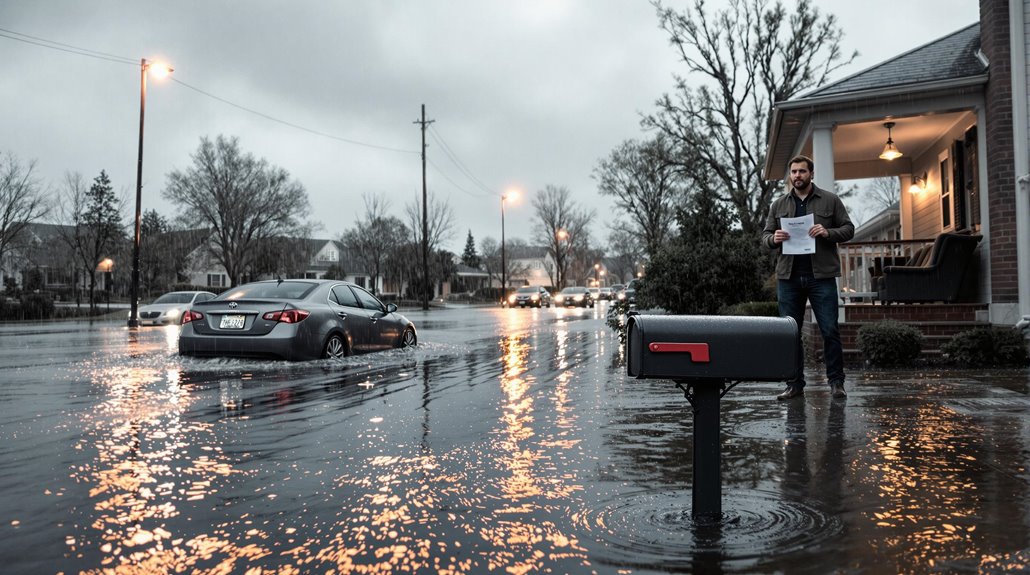
Although the distinction between rain damage and flood damage is essential, there are instances where flood insurance may cover damage caused by heavy rainfall. This typically occurs when rainwater accumulation is a result of stormwater management issues, such as inadequate drainage systems or nearby water body overflow.
| Condition | Flood Insurance Coverage |
|---|---|
| Rainwater accumulation due to stormwater management issues | Covered |
| Overflow from nearby water body | Covered |
| Heavy rainfall with no stormwater management issues | Not Covered |
| Rainwater seepage through building envelope | Not Covered |
In these situations, flood insurance may provide coverage for damage caused by rain-related events. However, the specific terms and conditions of the policy will ultimately determine the extent of coverage.
What Types of Rain Damage Are Excluded From Flood Insurance?
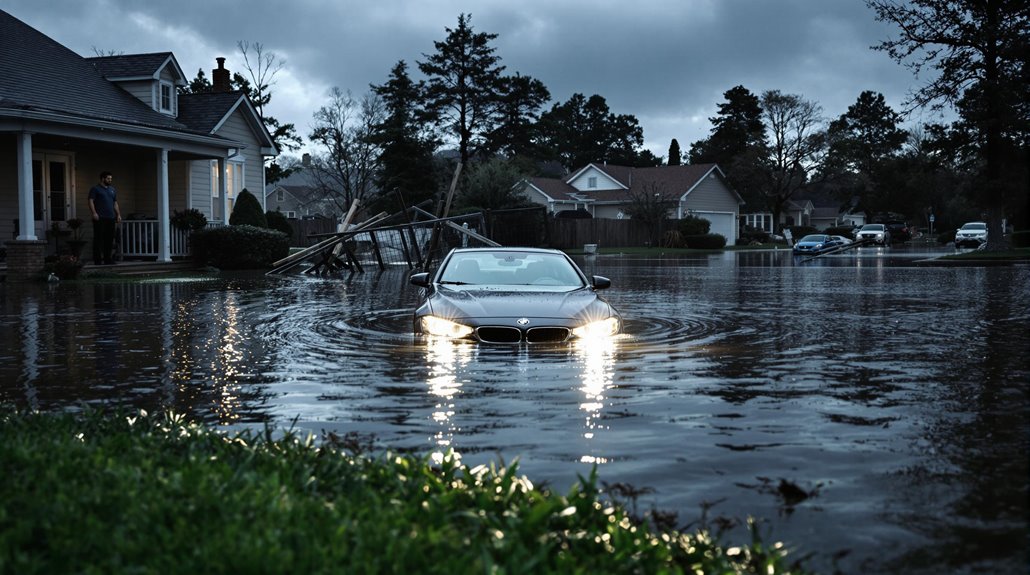
Damage caused by rain-related events can be complex and nuanced, and not all types of rain damage are covered under flood insurance policies. To understand what is excluded, it is essential to review the exclusions list and policy specifics. Typically, flood insurance policies exclude damage caused by rain that enters a building through a roof or wall, rather than through a flood event. This includes damage from roof leaks, ice dams, or overflowing gutters. Additionally, damage caused by sewer backups or sump pump failures may also be excluded if not specifically endorsed on the policy. Policyholders should carefully review their policy documents to understand what types of rain damage are excluded from coverage and consider additional coverage options if necessary.
How to Determine If You Need Flood Insurance for Rain-Related Risks
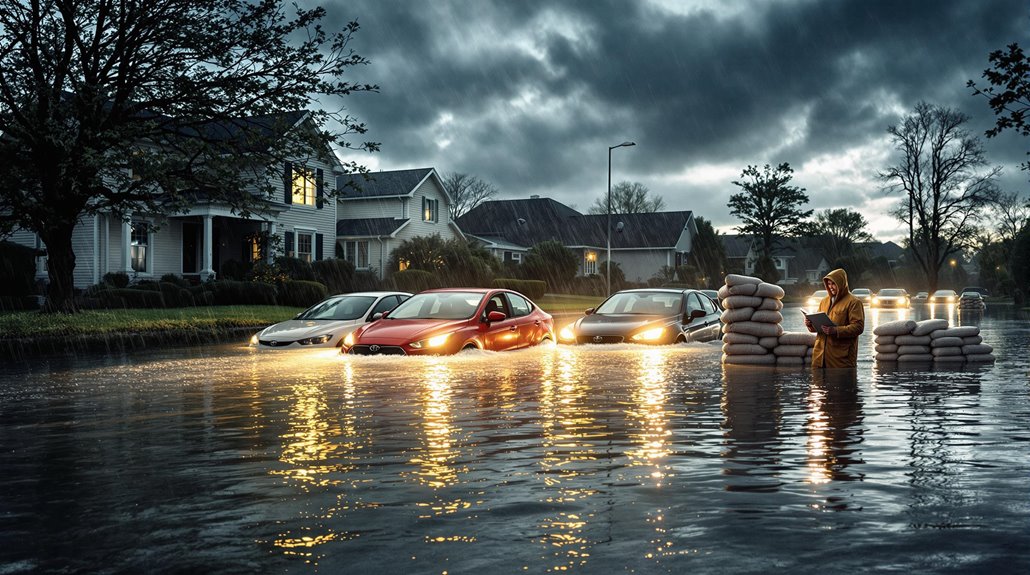
Given the complexities of rain-related risks, determining whether flood insurance is necessary requires a thorough evaluation of several factors, including geographic location, flood risk, and property characteristics. Homeowners and businesses should assess their flood risk by reviewing flood maps, consulting with local authorities, and evaluating the property's elevation and drainage. Additionally, they should consider the insurance requirements for their area, as some regions are designated as high-risk zones, necessitating mandatory flood insurance. By analyzing these factors, individuals can make informed decisions about whether to purchase flood insurance to protect against rain-related risks. This assessment will also help them understand the specific policy terms and conditions that apply to their situation, ensuring adequate coverage in the event of a flood.

